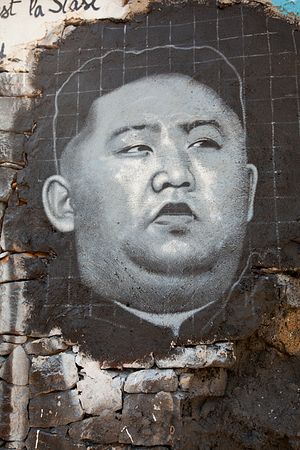According to South Korean media, China’s military is ramping up its presence near the North Korean border. Last week, the 39th Army of the PLA reportedly held training exercises on the border with the purpose of conducting “intensive research in bitterly cold conditions, issues of maneuvering, camouflage, military quarters, command and operations, and for the unit to raise operational skills across the board,” according to an unnamed PLA official.
Such training has been held before, and may not be connected to the recent upheavals within North Korea. However, there are also reports that China has increased its border security forces in a reaction to the ouster of North Korean leader Jang Song-Thaek. According to an unnamed source, armed police have been assigned to patrol border posts, in part reflecting a concern that events in North Korea will lead to an increased number of refugees attempting to enter China.
The military aspect is just one part of China’s cautious reaction to the news that Kim Jong-Un had his uncle removed from power. While China is North Korea’s only major ally, Chinese leaders can still be caught off guard by the unpredictable actions of the North Korean leadership. The removal of Jang, who had been the major intermediary between China and Kim, was as much of a shock to China as it was to any other country.
China has long pushed North Korea to follow the Chinese path of development — economic reform and opening up without political change. Such changes would increase North Korea’s economic stability, leading to increase national stability as a whole. A self-sufficient North Korea would be less of a headache for China, particularly if North Korea’s entrance into the global economic system forced the leadership to be more pragmatic regarding their nuclear ambitions.
Jang seemed to be China’s best hope for seeing this economic transition take shape in North Korea. Jang visited China in August 2012, where he met with then-President Hu Jintao and then-Premier Wen Jiabao. The main topic of discussion was economic reform, which resulted in agreements for China and North Korea to cooperate on “special economic zones” along their border. Despite this, the projects stalled and now, with Jang gone, their fate is entirely up in the air.
In addition, one of the many charges leveled against Jang was the accusation that he committed “such acts of treachery as selling off precious resources of the country at cheap prices.” This is almost certainly a reference to North Korea’s exports of iron ore and other minerals to China. Kim Jong-Un had complained previously that North Korea’s resources should be sold for higher prices; now he has labeled Jang’s opposing view “treachery.” This doesn’t bode well for Chinese mine operators in the region, which in turn means North Korea could jeopardize one of its more steady sources of income.
As Zhu Feng, professor of international relations at Peking University, told the New York Times, Jang was “the man China counted on to move the economy in North Korea. This [Jang’s dismissal] is a very ominous signal.” Chinese media have also relayed reports from South Korea that the North Korean leadership has begun exporting gold reserves to China. According to the reports, this could be a sign that North Korea is facing its most serious economic crisis since the country’s founding. While speculative, the reports do indicate a concern within China that there may be a crisis on the horizon in North Korea.
On other hand, an article in People’s Daily, reprinted by Sina News, scoffed at the idea that Jang’s ouster represented a break with China. Such a move would cost North Korea its only consistent source of political and economic support. “For Kim Jong Un,” the article said, “this would be a suicidal choice.” When asked at a press conference how the removal of Jang from power would affect Northeast Asia, Foreign Ministry Spokesman Hong Lei seemed unconcerned, replying that “this is the internal affairs of the DPRK.” Hong added that “China will stay committed to promoting its traditional, friendly and cooperative relationship with the DPRK.”
Such comments in state media and by Chinese officials show that China is not over-thinking how Jang’s ouster might affect China-DPRK relations. However, as always, Chinese leadership is keeping a watchful eye on North Korea’s own internal stability. Should Jang’s ouster come to mean that Kim is now fully in control of the country, China will have no problems with it. If instead the move causes political upheaval and/or an economic crisis, China wants to be prepared.
As the headline of a Global Times editorial read, “North Korean stability suits China’s interest” — and all other concerns are secondary. “As a friendly neighbor,” Hong went on, “we hope to see national stability, economic development and people living in happiness in the DPRK.” Jang’s ouster is potentially bad news for all three categories. China will keep a close eye on the situation, but at the moment is far from panicking.

































